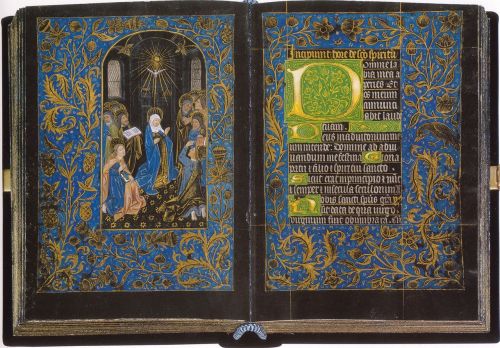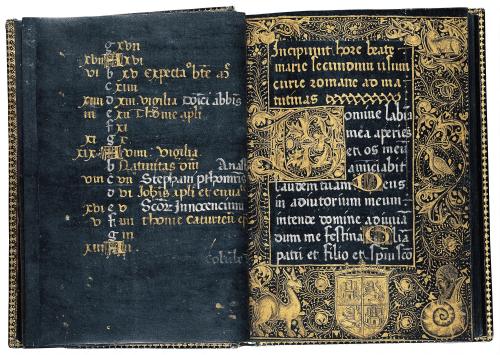Late Victorian Brooch With A Man In The Moon Cameo Carved From Transparent Moonstone, Set In White And

Late Victorian brooch with a man in the moon cameo carved from transparent moonstone, set in white and rose gold with a border of diamonds and rubies.
More Posts from Syqiss and Others
rest in peace, David Lynch. May you be enbraced by the silver arms of the moon


🪶 . . . sorceress, & minor goddess of magic.
Circe (or Kirke) is a goddess of magic and a skilled sorceress who is mentioned in Homer's Odyssey. daughter of Helios and Perseis, a sea nymph, she resides on the island of Aeaea where she encounters Odysseus.
Circe meets Odysseus when his travelling companions enter her palace after reaching Aeaea. however, before joining them, Odysseus meets Hermes, who instructs him to take a magic herb before he speaks with Circe, who will attempt to enchant him too.
having resisted her enchantment, Circe becomes enamoured with Odysseus, and swears and oath to do no more mischief to him and his men in exchange for him laying with her. she turns his travelling companions from swine back into men, and they bring their ship ashore and spend a year and a day feasting with Circe and the nymphs of her palace and living in comfort.
following this, though, Odysseus is reminded by his men they should go on - and so, instructing him in the art of necromancy, or what must be done to reach the underworld, Circe tells him he must travel to the realm of Hades to meet the prophet Tiresias. she sets his men off when the wind is favourable, with instructions of how to safely pass the island of the Sirens.

🪶 . . . powerful enchantress.
Circe is often described as a fearsome goddess, and her island is said to be inhabited by lions and wolves who were once men. being a daughter of Helios, she is beautiful and radiant, with particularly lovely hair, but is said to be a very powerful sorceress. in the Odyssey, Homer gives her the epithet Polypharmakos (or knowing many drugs or charms), because of her detailed knowledge of herbs and enchantments. in addition to her potions and tinctures, Circe also wielded a magic wand with which she could enchant or transform.

🪶 . . . worship & modern times.
Circe was the subject of some cult worship (or hero-worship) in ancient Greece, but similar to some other mythological figures has been reimagined in modern times in a more positive light to how she was understood in wider society due to a view of her as a powerful, free woman. in her role as a goddess of magic, she may also be embedded in some people's practice of witchcraft in the modern era.
I don't personally work with Circe, though! she is a goddess I am very interested in, but I have never interacted with her myself, so if any of you have experiences communicating with or working with her I'd love to hear about them!




A collection of Black Books of Hours
Black Hours, ca. 1475 (Morgan Library, New York)
Horae beatae marie secundum usum curie romane, ca. 1458 (Hispanic Society of America)
Black Hours of Galeazzo Maria Sforza, ca. 1466-1476 (Austrian National Library)
very desperate (i cannot find arthuriana accounts that are morgana or mordred or merlin centered that aren't about that Merlin show) (no problems with it i just cannot find arthuriana only gifs packs about that show)
"To Hygeia (Health), Fumigation from Manna.
O much desired, prolific, general queen. Hear me, life-bearing Hygeia, of beauteous mien, mother of all; by thee diseases dire, of bliss destructive, from our life retire; and every house is flourishing and fair, if with rejoicing aspect thou art there. Each daidal art they vigorous force inspires, and all the world thy helping hand desires. Aides (Haides), life's bane, alone resists thy will, and ever hates thy all-preserving skill. O fertile queen, from thee for ever flows to mortal life from agony repose; and men without thy all-sustaining ease find nothing useful, nothing formed to please. Without thy aid, not Aides' self can thrive, nor man to much afflicted age arrive; for thou alone, of countenance serene, dost govern all things, universal queen. Assist thy mystics with propitious mind, and far avert disease of every kind."
Orphic Hymn 68 to Hygeia (trans. Taylor)
-
 cetaceous liked this · 2 weeks ago
cetaceous liked this · 2 weeks ago -
 welldesignedworld reblogged this · 2 weeks ago
welldesignedworld reblogged this · 2 weeks ago -
 rosefyrefyre liked this · 2 weeks ago
rosefyrefyre liked this · 2 weeks ago -
 casperthefuckinghost liked this · 2 weeks ago
casperthefuckinghost liked this · 2 weeks ago -
 aqueenvictorious reblogged this · 2 weeks ago
aqueenvictorious reblogged this · 2 weeks ago -
 blood-ology liked this · 3 weeks ago
blood-ology liked this · 3 weeks ago -
 burythecarnival liked this · 3 weeks ago
burythecarnival liked this · 3 weeks ago -
 2snowcreature2 reblogged this · 3 weeks ago
2snowcreature2 reblogged this · 3 weeks ago -
 maverick-ornithography liked this · 3 weeks ago
maverick-ornithography liked this · 3 weeks ago -
 a-disaster-piece reblogged this · 3 weeks ago
a-disaster-piece reblogged this · 3 weeks ago -
 nativefay reblogged this · 4 weeks ago
nativefay reblogged this · 4 weeks ago -
 dancingelvenfangirl-blog reblogged this · 4 weeks ago
dancingelvenfangirl-blog reblogged this · 4 weeks ago -
 dancingelvenfangirl-blog liked this · 4 weeks ago
dancingelvenfangirl-blog liked this · 4 weeks ago -
 arcticia reblogged this · 1 month ago
arcticia reblogged this · 1 month ago -
 arcticia liked this · 1 month ago
arcticia liked this · 1 month ago -
 theflyingmuffin liked this · 1 month ago
theflyingmuffin liked this · 1 month ago -
 saria666 liked this · 1 month ago
saria666 liked this · 1 month ago -
 dandyvampling reblogged this · 1 month ago
dandyvampling reblogged this · 1 month ago -
 pomelo0o liked this · 1 month ago
pomelo0o liked this · 1 month ago -
 fxckshxtup reblogged this · 1 month ago
fxckshxtup reblogged this · 1 month ago -
 pornographicmoshpit reblogged this · 1 month ago
pornographicmoshpit reblogged this · 1 month ago -
 wisteriasymphony liked this · 1 month ago
wisteriasymphony liked this · 1 month ago -
 dreamcastgirl99 liked this · 1 month ago
dreamcastgirl99 liked this · 1 month ago -
 darknovalatte liked this · 1 month ago
darknovalatte liked this · 1 month ago -
 e-witch reblogged this · 1 month ago
e-witch reblogged this · 1 month ago -
 hypotheticalheroine reblogged this · 1 month ago
hypotheticalheroine reblogged this · 1 month ago -
 flowerkitten liked this · 1 month ago
flowerkitten liked this · 1 month ago -
 carnalreincarnated liked this · 1 month ago
carnalreincarnated liked this · 1 month ago -
 innen-verfault reblogged this · 1 month ago
innen-verfault reblogged this · 1 month ago -
 sapphirepolexia reblogged this · 1 month ago
sapphirepolexia reblogged this · 1 month ago -
 octopusonparade reblogged this · 1 month ago
octopusonparade reblogged this · 1 month ago -
 nervepain reblogged this · 1 month ago
nervepain reblogged this · 1 month ago -
 orthoclasefeldspar reblogged this · 1 month ago
orthoclasefeldspar reblogged this · 1 month ago -
 faeriecoma liked this · 1 month ago
faeriecoma liked this · 1 month ago -
 tyuiop12346 liked this · 2 months ago
tyuiop12346 liked this · 2 months ago -
 short-dumbass-minion liked this · 2 months ago
short-dumbass-minion liked this · 2 months ago -
 coffee-in-europe reblogged this · 2 months ago
coffee-in-europe reblogged this · 2 months ago -
 daisiko reblogged this · 2 months ago
daisiko reblogged this · 2 months ago -
 noah-makes-art reblogged this · 2 months ago
noah-makes-art reblogged this · 2 months ago -
 elizabethkawaii17 liked this · 2 months ago
elizabethkawaii17 liked this · 2 months ago -
 ex-coelis liked this · 2 months ago
ex-coelis liked this · 2 months ago -
 vandalblood reblogged this · 2 months ago
vandalblood reblogged this · 2 months ago -
 v1ral300 liked this · 2 months ago
v1ral300 liked this · 2 months ago -
 owmyovaries reblogged this · 2 months ago
owmyovaries reblogged this · 2 months ago -
 pozhar reblogged this · 2 months ago
pozhar reblogged this · 2 months ago -
 misguidedconqueress liked this · 2 months ago
misguidedconqueress liked this · 2 months ago -
 mylos-blog liked this · 2 months ago
mylos-blog liked this · 2 months ago

priest, poet, occultist, alchimist, devotee. bronze age, hellenic, roman, celtic, medieval history.
57 posts














